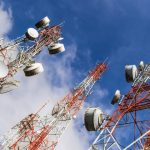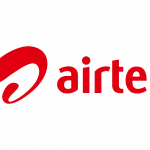General
Shell Makes $40m Social Investment in Nigeria
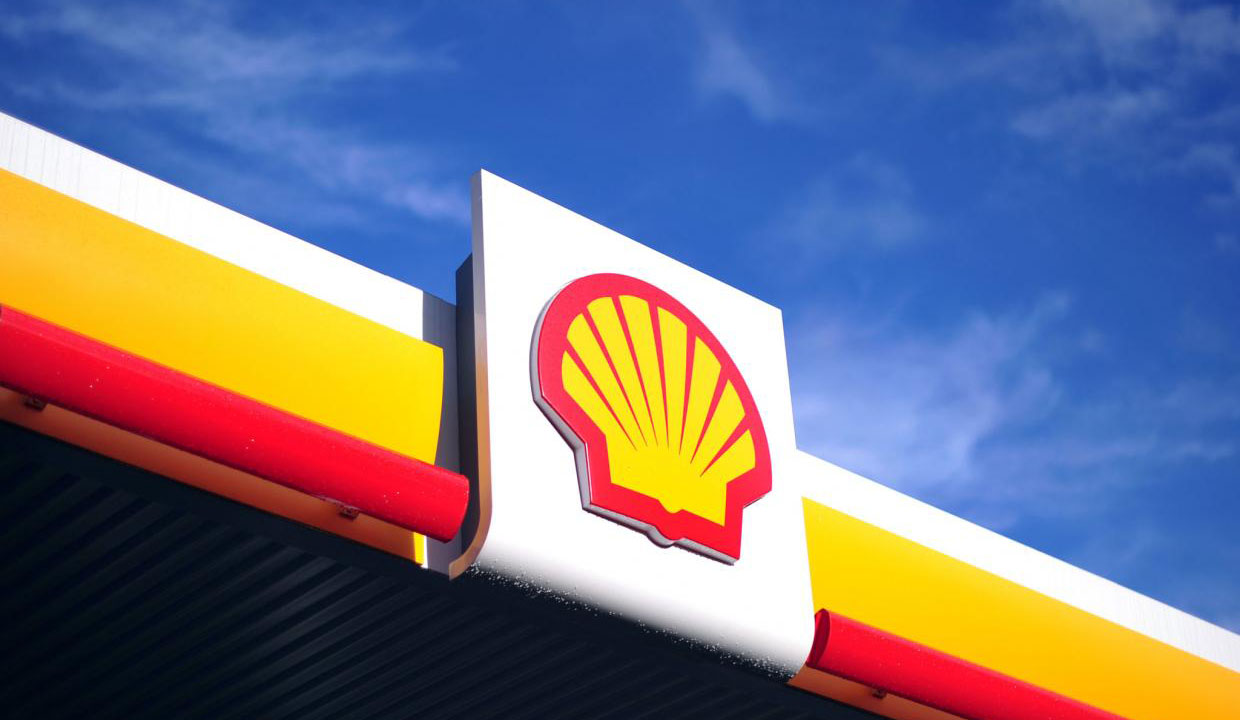
By Adedapo Adesanya
Shell has disclosed that Nigeria benefited most from its social investment spending in 2019 as it invested $40 million through its three subsidiaries operating in the country.
This was disclosed in its Nigerian Briefing Notes released on Thursday. Shell said the investments were done through Shell Petroleum Development Company (SPDC), Shell Nigeria Exploration and Production Company (SNEPCO), and Shell Nigeria Gas (SNG).
They were used in the provision of access to affordable healthcare, educational support, enterprise support, accelerating access to energy, and providing assistance and safety.
The multinational company explained in the last 14 years, it has invested $252 million in community-driven programmes of which there are 667,000 beneficiaries in its health outreach beneficiaries, adding that it has given out 6,000 university grants since 2011.
According to the company, Nigeria is a thriving and vibrant country, offering opportunities for people to improve their livelihoods, adding that the scale of the opportunity was mirrored by the scale of the challenges to provide affordable energy, education, healthcare and conditions for local businesses to grow.
According to Shell, the companies undertake two types of social investment activities: direct social investment and community development programmes across Nigeria. The former, it noted focuses on community and enterprise development, education, community health, access-to-energy, road safety and since 2018, biodiversity.
The companies, it said, also undertake community-driven development programmes and initiatives in the Niger Delta, which focus on various themes as determined by benefitting communities and delivered through a Global Memorandum of Understanding (GMoU), adding that are currently 39 active GMoUs in Abia, Bayelsa, Delta, Imo and Rivers States.
In 2019; Shell noted that three new GMoUs were deployed and 10 GMOUs renewed. These GMoUs provide secure five-year funding for communities to implement development projects of their choice.
According to Shell, since 2006, a total of $252 million had been disbursed to communities through these GMoUs, noting that GMoU projects cover community health, education, enterprise development and social infrastructures, such as improved water and power supply, and sanitation.
In the area of education, Shell said: “Educating Nigeria’s young population is critical to the success of the country. Shell Companies in Nigeria have a long history of supporting education through scholarships and other initiatives. Since the 1950s, the Shell scholarship schemes have supported several thousands of students many of whom are among Nigeria’s business, political and social leaders.
“In 2019, the SPDC JV and SNEPCo invested $7.8 million in scholarships. Since 2011, the schemes have awarded more than 9,400 secondary school grants and over 6,000 university grants to students.”
In the area of Enterprise support, the company said: “Shell works to improve the chances for Nigerians to achieve their ambitions. In addition to providing access to loans to small and medium businesses which could become Shell suppliers and contractors, there is also the LiveWIRE youth enterprise development programme.
“LiveWIRE was launched in Nigeria in 2003 and provides training and finance to young people between the ages of 18-35 to start or expand their own businesses.
“In 2019, 140 people benefitted from the LiveWIRE programme, receiving training in enterprise development and management, as well as business start-up grants. More than 7,000 Nigerian youths have so far been trained under the programme and almost 4,000 young entrepreneurs were provided with business grants.”
General
UBA’s Abiodun Coker Wins Future Leader in Media Management Award
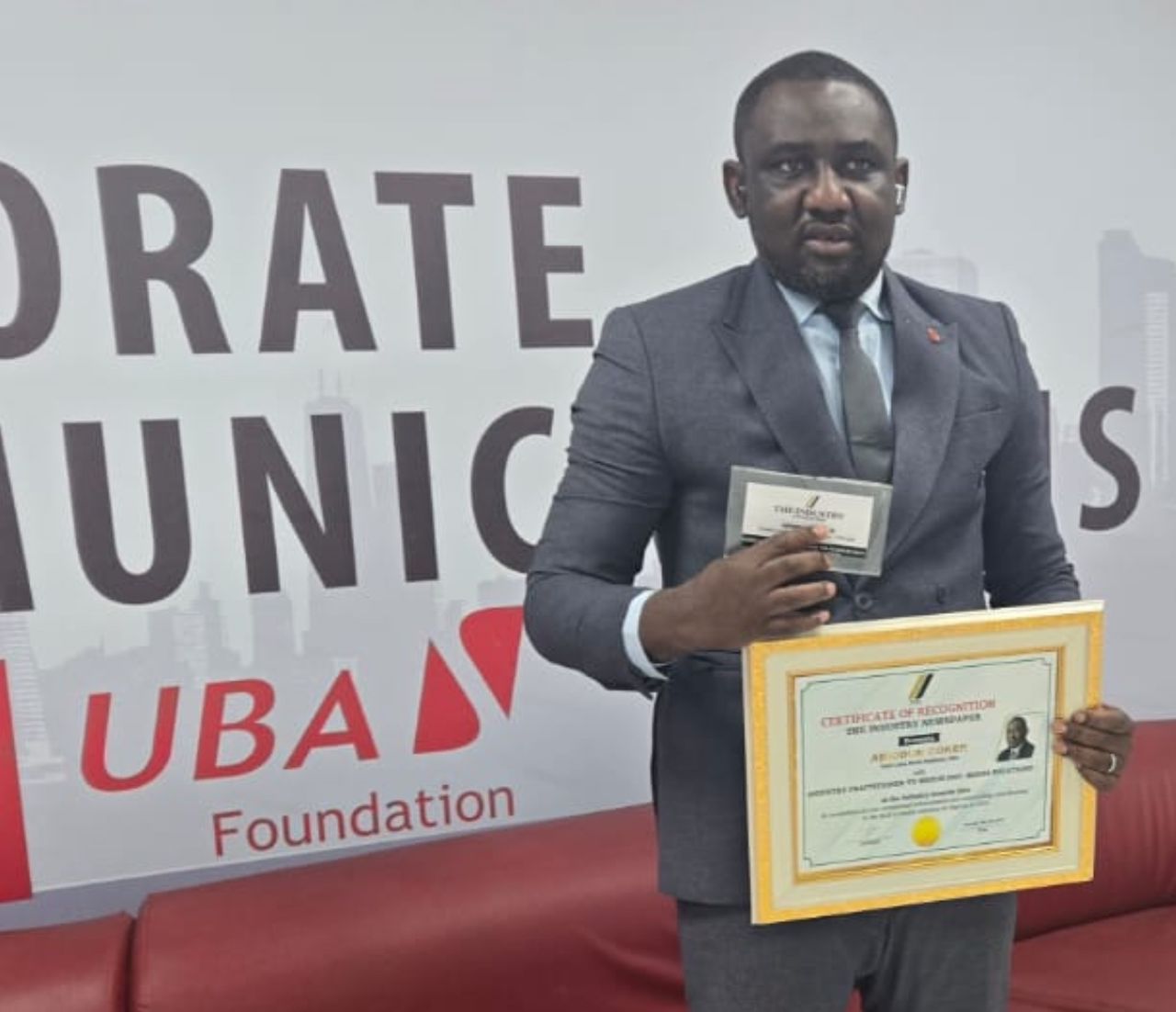
By Modupe Gbadeyanka
The Media and External Relations Lead of United Bank for Africa (UBA) Plc, Mr Abiodun Coker, has been crowned the Future Leader in Media Management.
He clinched this award at The Industry Summit/Awards held on Friday, May 2, 2025, in Lagos, with several persons from across all sectors in attendance.
Mr Coker’s recognition further cements his growing reputation as one of Nigeria’s most dynamic and future-ready communications leaders, with his eyes firmly set on redefining the media management landscape.
The award jury, chaired by Mr Tolulope Ogunjobi, a renowned broadcast business correspondent and Business Editor at TVC News, said Mr Coker was bestowed with the honour because of his exceptional achievements in the public relations field during the year 2024.
The team said one of them was his masterful handling of UBA’s 2024 rights issue, which successfully closed on December 24, 2024, and the impactful execution of the bank’s 75th Anniversary Campaign, both of which were described as commendable and exceptional.
According to the jury, his management of UBA’s media ecosystem during the year under review was remarkable, with several media professionals praising his public relations craftsmanship and ability to skilfully manage the image of one of Africa’s most formidable financial brands.
“Abiodun Coker’s achievements in 2024 are a beacon for greater accomplishments ahead. He is undoubtedly one of the strategic communication experts to watch in 2025,” the jury noted.
A seasoned professional, Mr Coker’s journey from an acclaimed financial journalist at BusinessDay Newspapers to a powerhouse in corporate communications has been nothing short of inspiring.
With over eight years of robust journalism experience, coupled with leadership roles at top-tier public relations firms such as BD Consult Ltd and Quadrant, he has consistently demonstrated his ability to transform and manage leading brands successfully.
Organized by The Industry Newspaper, the leading brand marketing publication in West Africa, the prestigious awards recognize outstanding professionals shaping the future of brand marketing and communications across the region.
General
FG Reassures Investors More Enabling Investment Climate
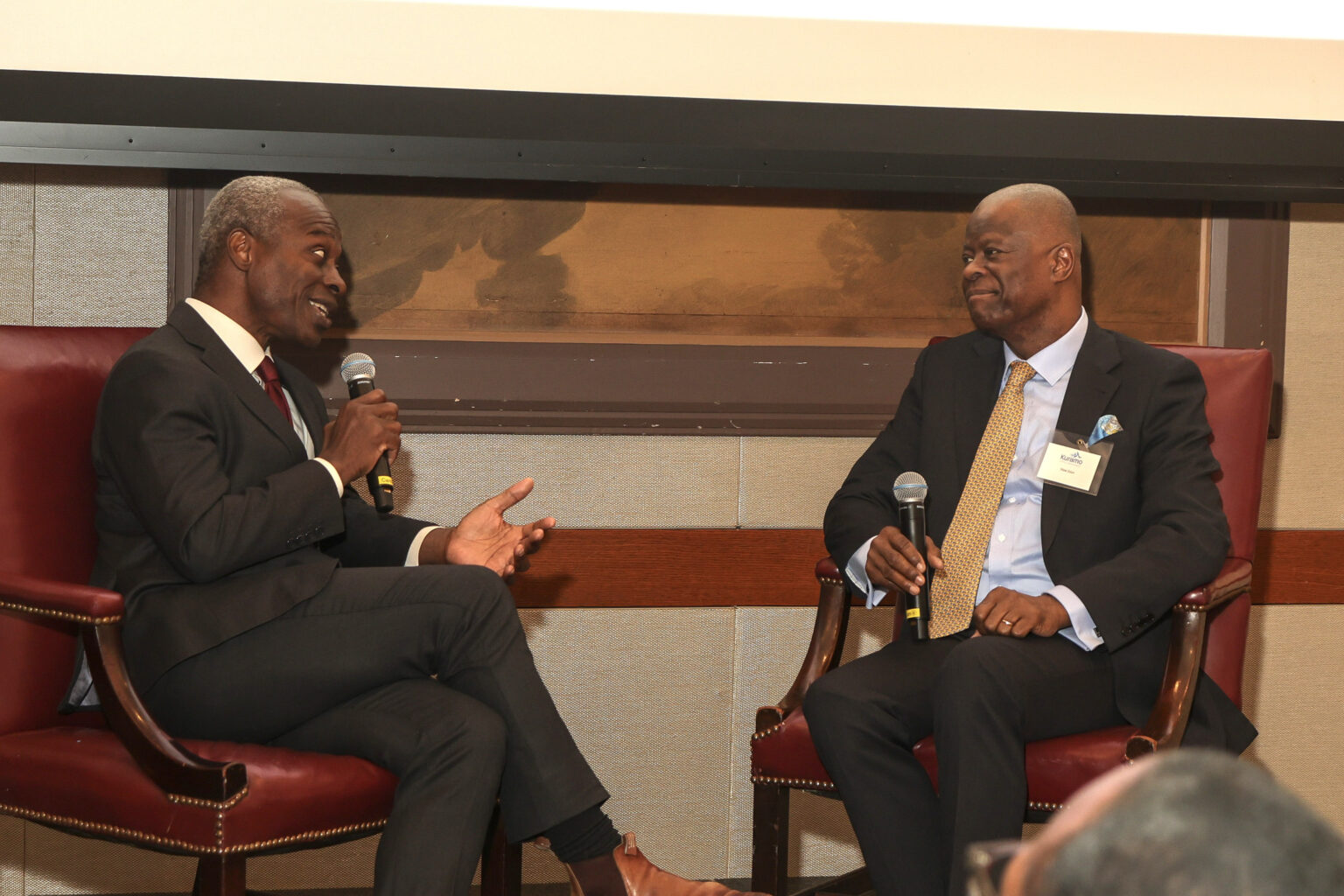
By Adedapo Adesanya
The Minister of Finance and Coordinating Minister of the Economy, Mr Wale Edun, has reiterated the federal government’s commitment to fostering a more enabling investment climate, anchored on macroeconomic stability, structural reform, and a clear pathway to inclusive prosperity.
He gave this assurance at a high-level private dinner, organized by Kuramo Capital Management Lagos as part of Africa Venture Capital Week.
The Minister lauded Kuramo Capital and its partners for their steadfast belief in Africa’s promise and highlighted the alignment between private capital and Nigeria’s renewed hope reform agenda.
According to a statement, participants recognized the vital role of blended finance and innovation in driving sustainable development.
The event brought together a distinguished group of global investors, development partners, and business leaders for a candid exchange on unlocking long-term capital for Africa’s growth and transformation.
It also marks Kuramo Capital’s first formal convening in Nigeria in several years, underscoring a renewed sense of commitment to deepening its strategic footprint across the continent.
Mr Edun said with this renewed commitment, the federal government is poised to unlock new opportunities for economic growth, investment, and inclusive prosperity.
He also called for more investment into the country, assuring participants that the right mechanisms are being put in place towards driving Nigeria’s development and improving the lives of its citizens.
General
FG Moves to Fast-Track Household Cash Transfer Scheme
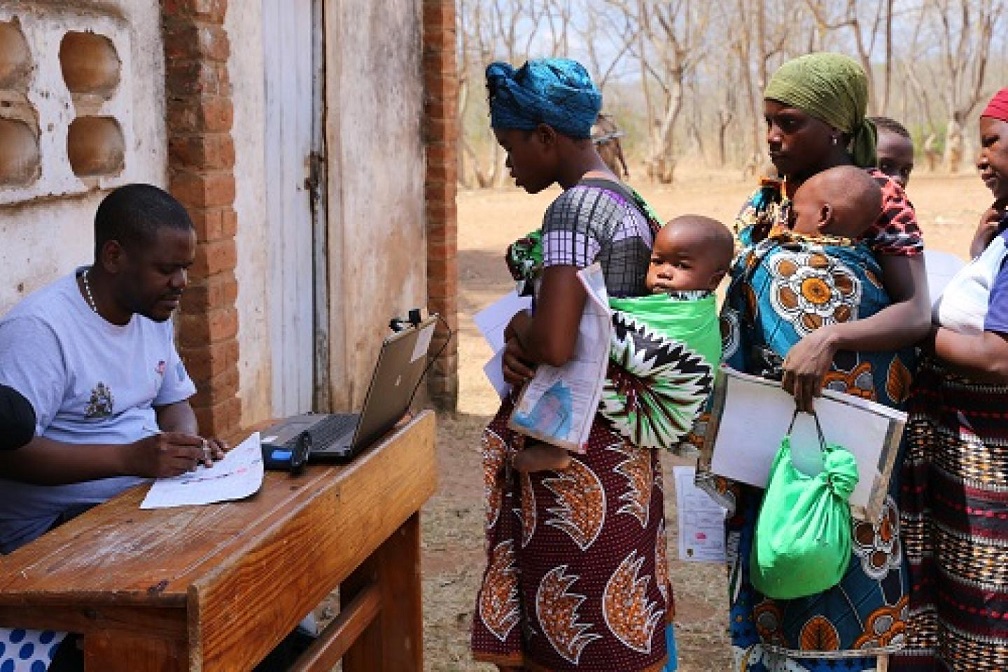
By Adedapo Adesanya
The federal government is fast-tracking the implementation phase of its economic and financial inclusion strategy aimed at improving access to economic opportunities for Nigerians.
This was disclosed by the Deputy Chief of Staff to the President, Mr Ibrahim Hadejia, at the inaugural meeting of the Technical Committee of the Presidential Committee on Economic and Financial Inclusion (PreCEFI).
He said that “Financial inclusion is not just about having a bank account—it means access to quality services, credit, and the visibility that digital platforms offer.”
The meeting was held at the Presidential Villa, Abuja, on Wednesday.
The federal government established an inter-agency task force to address challenges delaying President Bola Tinubu’s approved conditional cash transfers to 15 million vulnerable households.
The task force includes the National Identity Management Commission (NIMC), National Social Safety-Nets Coordinating Office, National Cash Transfer Office (NCTO), Central Bank of Nigeria (CBN) and Nigeria Inter-Bank Settlement System (NIBSS).
The mandate of the taskforce goal is to unlock bottlenecks and fast-track the distribution of critical financial support to Nigeria’s most vulnerable.
The meeting also endorsed steps to work with state governments in localising data from the Enhancing Financial Innovation and Access in Nigeria (EFInA) Access to Financial Services survey – a biennial study conducted by the EFInA.
Mr Hadejia explained that the meeting brought together high-level stakeholders from government agencies, financial institutions, and academia to align on the President’s vision and execution roadmap.
“We are off to a very good start. What has led to the success of what we’ve done so far is alignment and inclusive stakeholder engagement,” he said.
On hsi part, the committee’s Secretary, Mr Nurudeen Zauro, said the meeting also approved PreCEFI’s strategic roadmap and governance structure.
Mr Zauro, who is also the Technical Advisor to the President on Financial Inclusion, said ” an inter-agency committee has been established to address delays in the disbursement of conditional cash transfers to 15 million households as mandated by President Tinubu.
“We will be presenting the report to the National Economic Council and the Nigerian Governors Forum to ensure data is domesticated and acted upon at the subnational level.”
Also, Director-General of NIMC, Mrs Abisoye Coker-Odusote, explained that digital identity plays a foundational role in achieving inclusion goals.
“The beauty of the NIN is that it bridges the financial divide. It provides access to health, education, and agricultural services and strengthens national data infrastructure,” she said.
The Director of Consumer Protection and Financial Inclusion at the CBN, Mrs Aisha Isa-Olatinwo, urged the committee to focus on implementable outcomes that serve those at the base of the pyramid.
According to her, financial inclusion is one of the eight reform pillars of the President’s agenda.
-

 Feature/OPED5 years ago
Feature/OPED5 years agoDavos was Different this year
-
Travel/Tourism9 years ago
Lagos Seals Western Lodge Hotel In Ikorodu
-

 Showbiz2 years ago
Showbiz2 years agoEstranged Lover Releases Videos of Empress Njamah Bathing
-

 Banking7 years ago
Banking7 years agoSort Codes of GTBank Branches in Nigeria
-

 Economy2 years ago
Economy2 years agoSubsidy Removal: CNG at N130 Per Litre Cheaper Than Petrol—IPMAN
-

 Banking2 years ago
Banking2 years agoFirst Bank Announces Planned Downtime
-

 Sports2 years ago
Sports2 years agoHighest Paid Nigerian Footballer – How Much Do Nigerian Footballers Earn
-

 Technology4 years ago
Technology4 years agoHow To Link Your MTN, Airtel, Glo, 9mobile Lines to NIN








